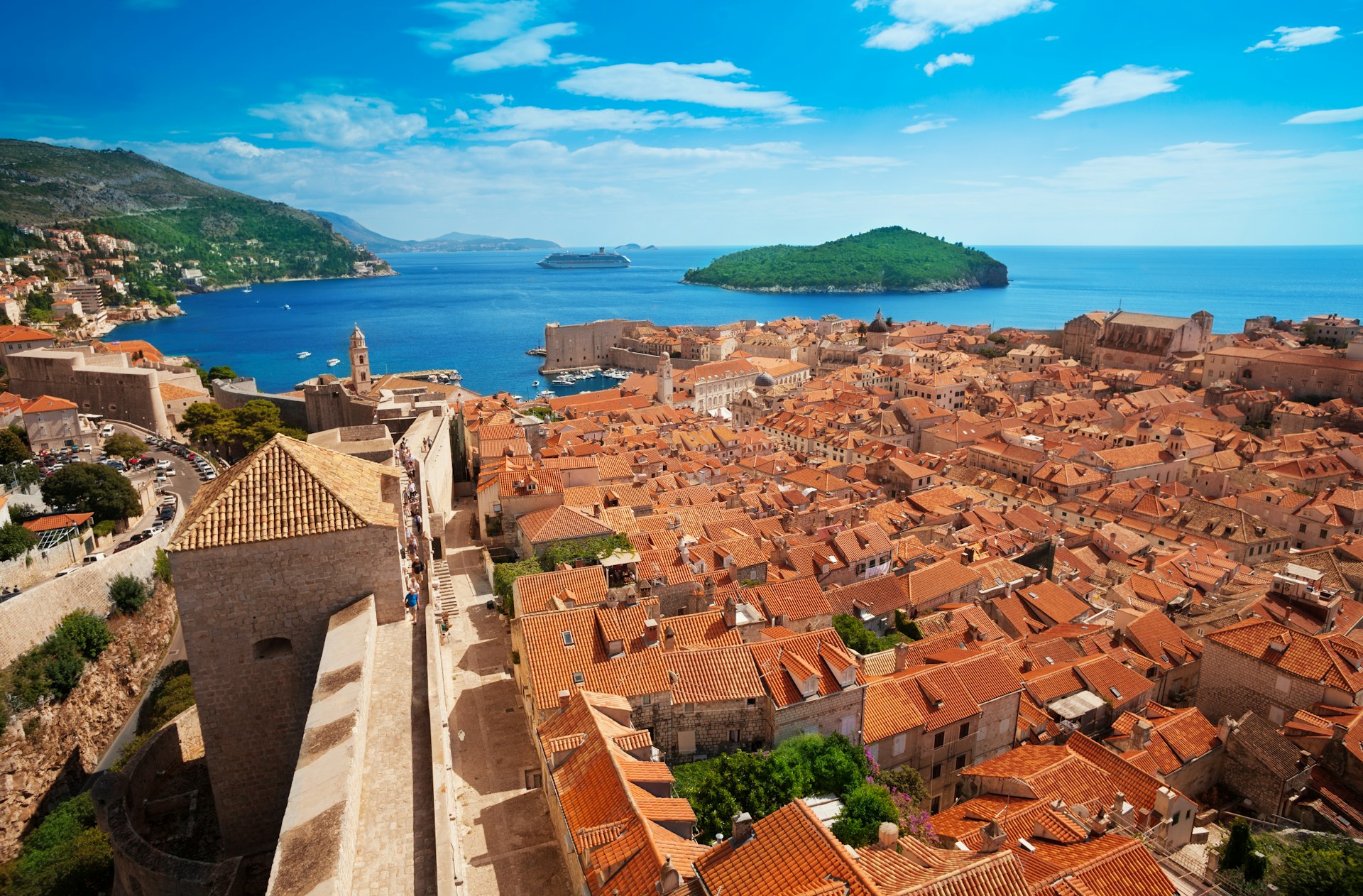Croatia is an endlessly appealing destination with sun-blessed beaches, picturesque hilltop towns and atmospheric backstreets.
Many come for the delights of the Dalmatian Coast and the rural charms of Istria. Others are here for superb hiking routes, treasured national parks, food and drink experiences, or the chance to enjoy the art, music and cafes of hip Zagreb.
Thankfully, the authorities have ensured the country is a breeze to enter for most visitors. Croatia joined the European Union (EU) in 2013, and is expected to join the free-traveling Schengen Area in 2023. That means visitors from much of Europe have minimal bureaucracy to worry about. Travelers from further afield may have a few hoops to jump through, but many won’t need visas – and those that do will find most information accessible online.
Here’s our guide to Croatia’s entry requirements, with information on tourist visas, passport requirements, visa types, the application process, whether you can work and what you can bring with you.
Want some help? Let Elsewhere plan your next trip.

Do I need a visa for Croatia?
EU citizens don’t need a visa for stays of any length, and don’t even need a passport providing they have an ID card. The same applies to members of the European Free Trade Association (EFTA): Iceland, Liechtenstein, Norway and Switzerland, that means you.
Many other nations don’t need visas either – although visitors from those places can only stay for a maximum of 90 days. That applies to most other European nations (including the UK and nearby Serbia, Montenegro, Kosovo, Bosnia and North Macedonia) as well as people from Canada, the US, most of Latin America, Australia, New Zealand and several Asian nations, including Japan, South Korea and Taiwan.
People from outside the EU and EFTA will need a passport that’s:
- less than ten years old;
- valid for at least three months after the date you plan to leave Croatia.
You can bring in a vehicle if your paperwork is satisfactory, and EU rules govern whether you can carry animal products into the country.

How do I apply for a Croatian tourist visa?
Of course, not every nationality is able to travel to Croatia visa-free. Everyone else – including citizens of China, India, Pakistan, Russia, Turkey and South Africa, will need visas to enter the country. For a complete list, check the website of Croatia’s Ministry of Foreign and European Affairs – you can use the drop-down to find individual nations.
The site has details for individual countries’ requirements and embassy locations. Most pages also link to the relevant VFS Visa Application Centre page, where you can find out costs (visas are usually €80 plus fees, with no charge for under-12s) and start the application process.
Applications for tourist or business visas (both of which are valid for 90 days) should be begun online, although they may eventually need to be submitted in person at an embassy, consulate or VFS Visa Application Centre. You’re recommended to start an application no more than three months before your trip starts.
Visas may sometimes be issued at the border, but this is only under exceptional circumstances, and is unlikely to be worth the risk of being turned away.
Can I extend a Croatian visa?
Citizens of the EU and EFTA, as well as Swiss nationals, can stay as long as they like. People from other countries – whether they’re traveling visa-free, on a tourist visa or on a business visa – can spend 90 days in the country over a 180-day period. There are a few exceptions:
- visas may be extended for serious personal circumstances;
- longer stays may be possible for people who take seasonal employment or study in the country;
- workers who intend to settle in Croatia may apply for residency.

Can I work in Croatia?
If you’re from the EU or EFTA (or you’re Swiss) you can work in Croatia.
People from outside the EU may be able to work in Croatia, but you’ll need to be supported by your employer and meet the requirements of the Croatian Employment Service – essentially proving you’re filling a gap in the Croatian workforce. Highly qualified workers who intend to make their home in Croatia may qualify for an EU Blue Card.
The rules are more relaxed for seasonal employment in agriculture, forestry, catering and tourism, where a job offer alone may be enough for a 90-day stay.
Keen to swap your normal working environment for a Zagreb cafe or an apartment overlooking the Adriatic? Digital nomads who are working for themselves or a non-Croatian company may be able to stay for up to a year if they meet the requirements of the application form.



